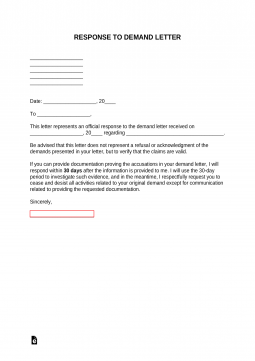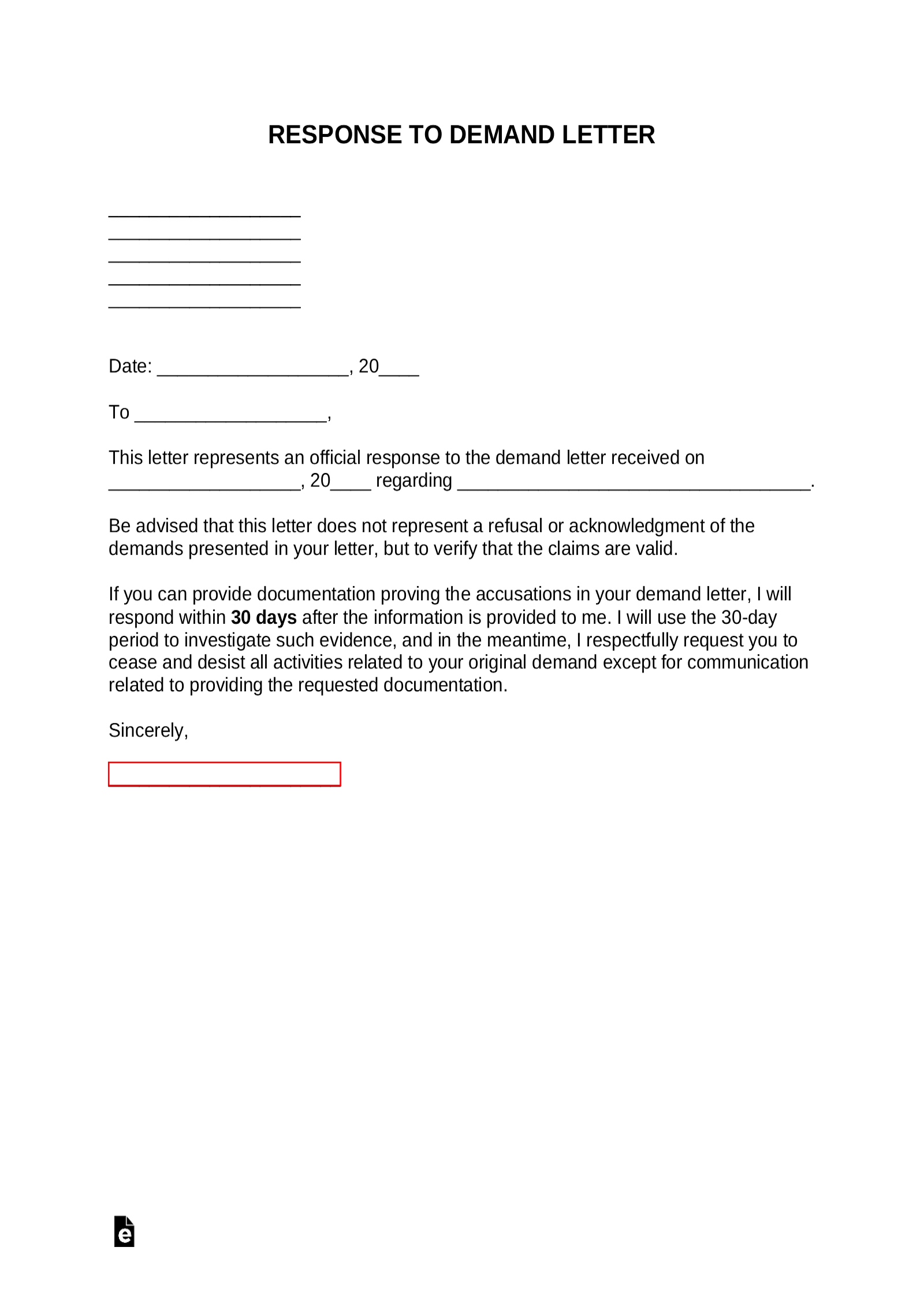Updated August 25, 2023
A response to demand letter is a formal written reply to a demand for payment. Though this response may be enough to repel the quest for payment, it may also enter as evidence in a court case if things aren’t resolved – so the letter should provide a clear and detailed explanation.
What to Include
The first demand letter presented a claim. The task here is to rebut this claim with a counterargument, generally including:
- A summary of the original demand letter, with an outline of its assertions (even if these are disputed) and the total payment that was demanded.
- An alternative account of events, as relevant, with corroborating evidence, if possible.
- Suggestions for how to remedy the dispute.
While some disputes boil down to simple “he-said-she-said” disagreements, many are less clear-cut. Indeed, there may be substantial agreement on key facts – or no factual dispute at all. It can help to try to find common ground and even make a counter-offer. But be careful with taking responsibility. This can be used against you later in court.
How to Respond to a Demand Letter (5 steps)
- Evaluate the Letter
- Determine Its Intent
- Calculate the Claims
- Is a Lawyer Needed?
- Respond Within Allotted Timeframe
1. Evaluate the Letter
The first step after receiving a letter is to carefully read it and evaluate its merits. Did the incident occur as described? Who is responsible? Is the amount demanded justified by the facts?
Even if the demand letter presents a true account, that does not mean that you are necessarily financially responsible. Make sure to carefully review the relevant legal standards before pulling out the checkbook.
2. Determine Its Intent
People send demand letters for all sorts of reasons. Some plaintiffs act in good faith, while others are just seeking a quick buck. Assessing intent can help in picking a strategy for response. It might work to strike a conciliatory tone with a good-faith adversary, but it probably won’t help fend off a profiteer.
Sample Response to Demand Letter
May 9, 2017
Dear Jane Theroux,
This letter is in response to your correspondence, dated May 7, 2017.
In that letter, you requested that I pay $570.00 to cover the cost of refinishing the floors of 343 Main Street, Apt. 3, Armsborough, MA after my departure on February 28, 2017.
I was a tenant in this unit from March 1, 2016 – February 28, 2017.
Though you did not take a security deposit at lease signing and are requesting this payment directly from me in lieu of deducting from a deposit, I refer you to the provisions of the Massachusetts General Laws regarding rental security deposits, which should apply to the matter at hand. Chapter 186, Section 15B indicates that deduction from a security deposit may be made to:
“…repair any damage caused to the dwelling unit by the tenant or any person under the tenant’s control or on the premises with the tenant’s consent, reasonable wear and tear excluded ” (MGL c. 186, §15B).
Though the photographs included with your original demand letter do depict some minor scratches in the areas of the living room and dining room, there is no evidence that I was responsible for this damage. Moreover, even if I were responsible, this damage evidently does not rise about the threshold of “reasonable wear and tear” specified in the General Laws.
While I sympathize with the challenge of maintaining a rental property, I do not believe that I am responsible either in fact or law for the damage in question.
Respectfully, I therefore request that you drop your claim against me.
Sincerely,
Sidney Bourgeois


